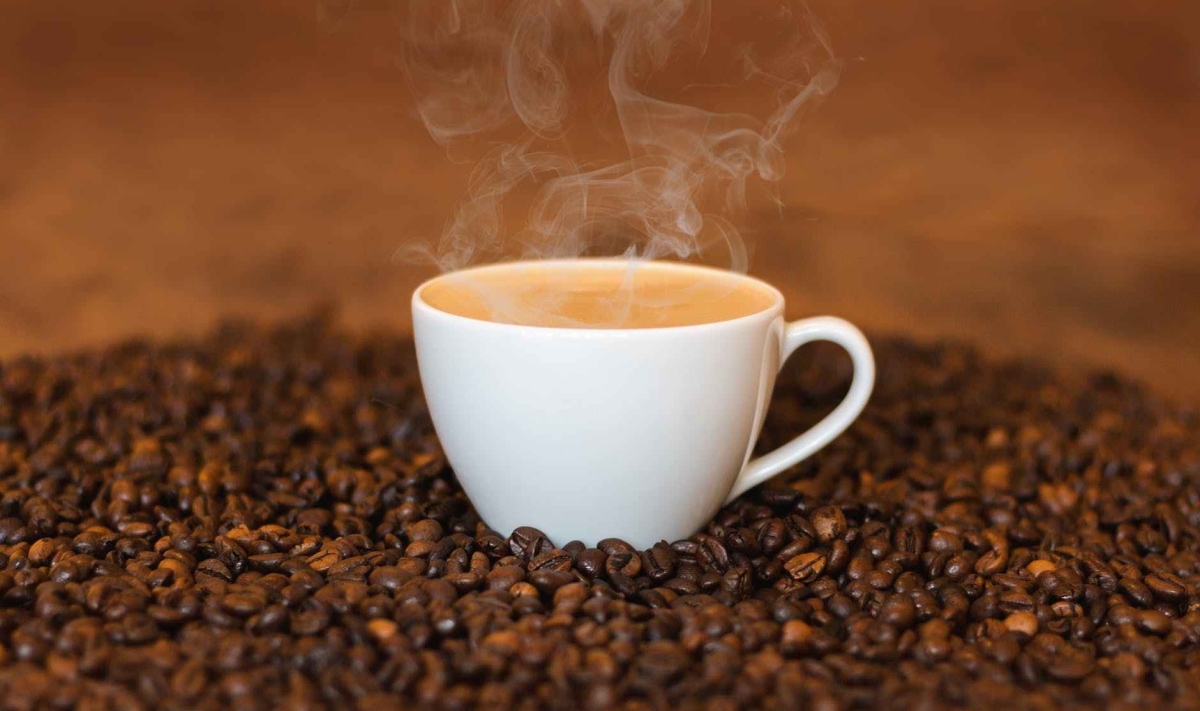Coffee can be countable and uncountable. It depends on the context. Most of the time these are interchangeable in common usage. “Would you like some coffee?” (Referring to the substance, uncountable). “Would you like a coffee?” Is really short for “would you like a cup of coffee” and refers to the cup, (countable).
But if you’re visiting someone in their home, asking for “a coffee” might sound a little rude, as if you were treating your host as a waiter. In a friendly setting (as opposed to a commercial one), I’d recommend asking for “a glass of water”, “a glass of orange juice” or “some orange juice”, “a cup of coffee”, or “a cup of tea”. For brand-name drinks or mixed drinks with standard names, it can be said: “a Coke”, “a Pepsi”, “a Fanta”, “a martini”, “a Boilermaker”, etc.
- Do you want to grab a (cup of) coffee? Do you want to grab a cup or a cuppa? *The verb “to grab” is another way of saying “to have/get” something. Shall we grab lunch? Let’s just grab a quick bite.
- Do you want to get a (cup of) coffee? Do you want to get a cup or a cuppa?
- Do you want to have a (cup of) coffee?
- Would you like to grab a (cup of) coffee?
- Are you up for a (cup of) coffee this weekend?
- Let’s have (some) coffee sometime!
- Let’s grab (some) coffee sometime!
| Would you like some coffee? |
uncountable because it’s referring to the substance |
| He ordered a coffee. |
countable, because it’s referring to a cup of coffee |
Using countable and uncountable nouns
When using countable or uncountable nouns, pay attention to articles and adjectives! Some articles and adjectives can be used with both countable and uncountable nouns. However, others can be used with only countable or only uncountable nouns.
| Used with Countable Nouns Only |
| a |
a doctor, a pen, a meal, a class, a college |
| many |
many cups, many books, many libraries, many flights |
| few |
few questions, few tables, few apples, few holidays, few countries |
| a few |
a few questions, a few problems, a few issues, a few issues |
| Used with Uncountable Nouns Only |
| much |
much money, much time, much food, much water, much energy |
| little |
little trouble, little equipment, little meat, little patience |
| a little bit of |
a little bit of confidence, a little bit of sleep, a little bit of snow |
| Used with Countable & Uncountable Nouns |
| the |
countable |
the monkeys, the schools, the teachers, the boats, the bananas |
| uncountable |
the cheese, the machinery, the luggage, the grass, the knowledge |
| some |
countable |
some tables, some stores, some grapes, some cities, some nurses |
| uncountable |
some time, some news, some bread, some salt, some mail |
| any |
countable |
any forks, any socks, any bathrooms, any waiters, any beliefs |
| uncountable |
any advice, any soap, any transportation, any gold, any homework |
| no |
countable |
no magazines, no chocolates, no pilots, no rings, no markers |
| uncountable |
no trouble, no grass, no scenery, no money, no furniture |
| a lot of |
countable |
a lot of animals, a lot of coins, a lot of immigrants, a lot of babies |
| uncountable |
a lot of help, a lot of aggravation, a lot of happiness, a lot of fun |
| lots of |
countable |
lots of computers, lots of buses, lots of parties, lots of colleges |
| uncountable |
lots of cake, lots of ice cream, lots of energy, lots of laughter |
| enough |
countable |
enough plates, enough onions, enough restaurants, enough worries |
| uncountable |
enough courage, enough wisdom, enough spaghetti, enough time |
| plenty of |
countable |
plenty of houses, plenty of concerts, plenty of guitars, plenty of |
| uncountable |
plenty of oil, plenty of sugar, plenty of cheese, plenty of space |
| word |
with a countable noun? |
with an uncountable noun? |
examples |
| few, fewer |
✓ |
✗ |
fewer students; few cars |
| little, less, least |
✗ |
✓ |
less food; little time |
| many, several |
✓ |
✗ |
several books; many changes |
| much |
✗ |
✓ |
much pleasure; much sleep |
Author: Carolina Duran
Carolina is a Marketing professional in London. She is passionate about writing, and design. Originally from Spain, Carolina focuses on topics such as English Grammar and Culture, Marketing, and General knowledge. As the creator of this blog she hopes learners will join the community, contribute and enjoy learning English together.
View all posts by Carolina Duran
